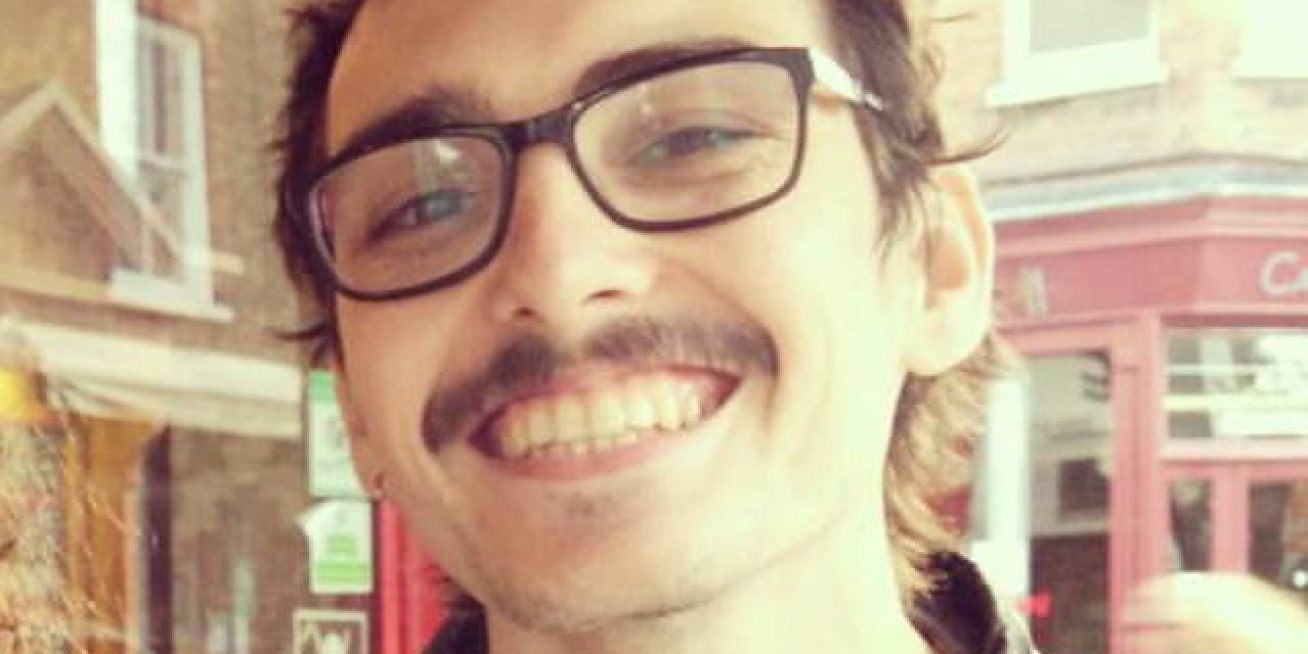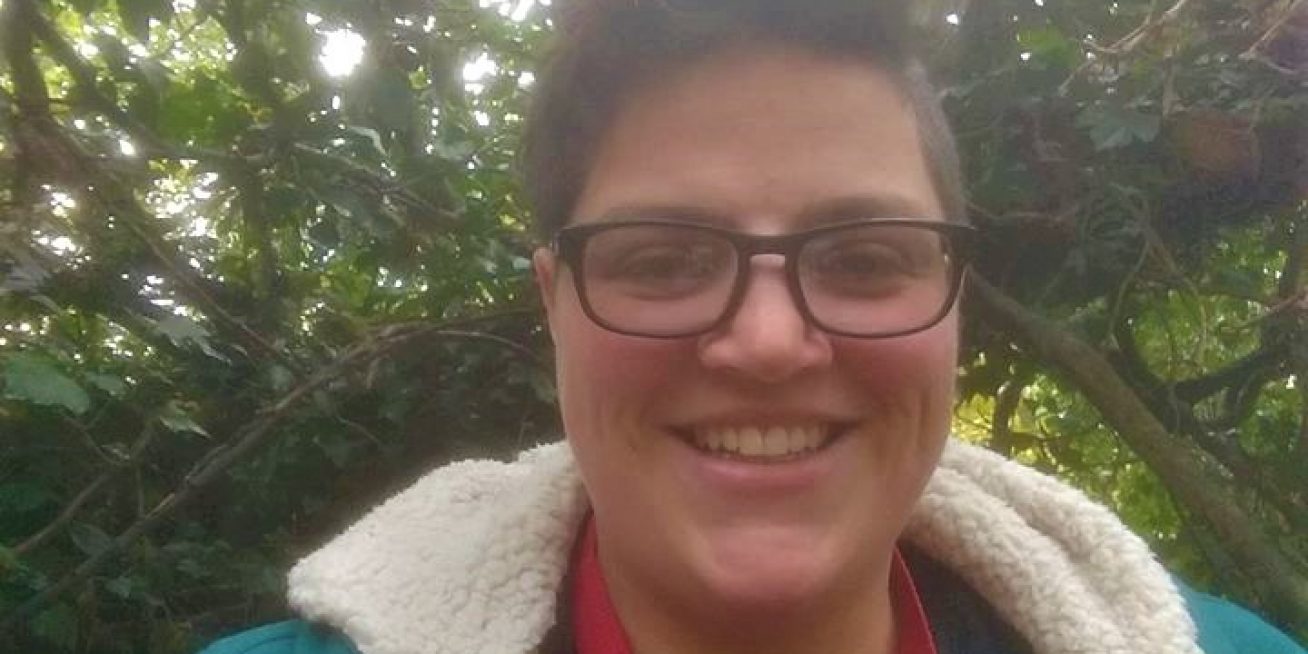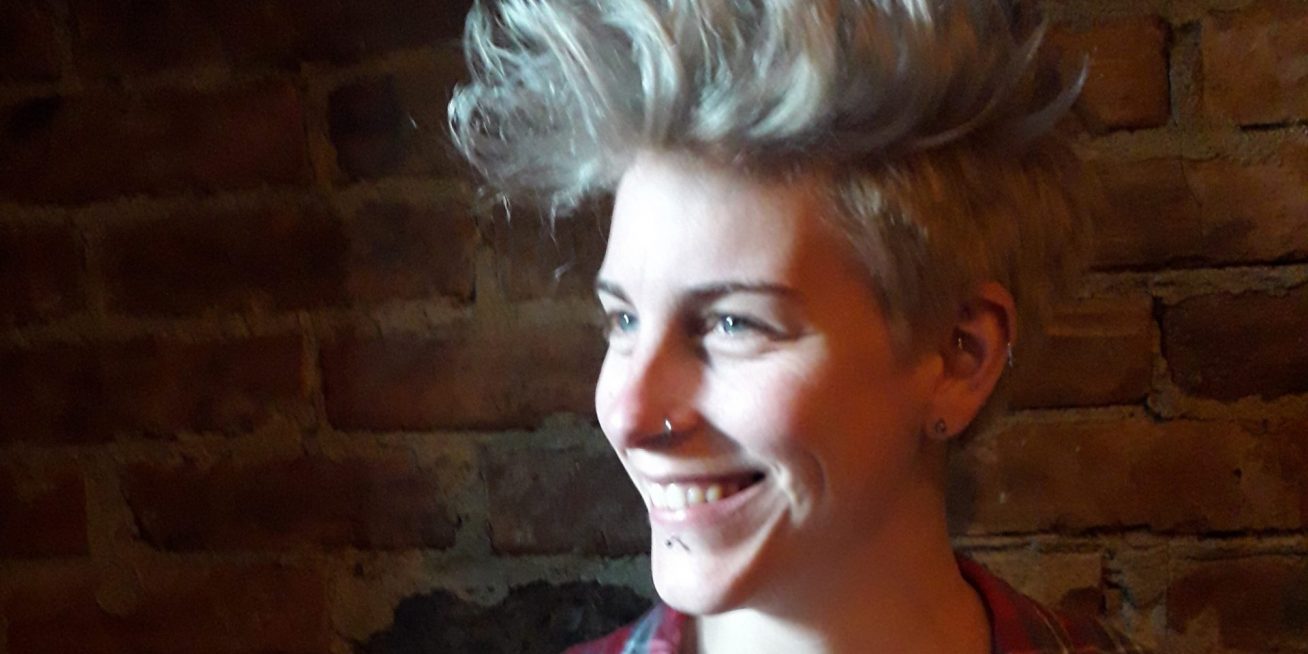Challenging the idea that 'homosexuality is unAfrican'
Samra talks about challenging ideas about homosexuality in Africa and the importance of activism coming from a place of love.
Interview recorded by Lydia Valentine on 29.11.2018
Duration 05:17
TRANSCRIPT
SM: Then I, like – because my family are coming from Uganda and the really fucking embarrassing homos... anti-homosexuality laws that they have tried over and over again to, to legislate... but keep failing because they are unconstitutional and they're problematic but the culture of homophobia and transphobia continues.So then I had, like… a couple of years ago... I must have been, like, maybe thirteen, fourteen – that film Call Me Kuchu which is talking about people's experiences came out... and I was absolutely outraged, really disgusted and also really disgusted by the opinions of some, like, family, member, you know.
So then from that point ,I started doing my own research into... because I kept hearing this stupid phrase that ‘homosexuality is unAfrican’ and it, you know, it's not ‘part of our culture’ which is a bullshit line that people always give, like it’s not part of a culture, like what is your fucking culture? Like misogyny, like why ground your culture on hatred and violence? Like why would you do that? Culture isn't a... that's like the antithesis of culture. Culture brings people together, you know.
So, yeah, I did my own research and obviously are so many queers all over Africa and there always have been and there always will be. And so I was, like, once I'd done the research I felt like, sort of, more empowered, and then... since being in Leeds, I suppose, like the activism, activism around queer stuff beyond... I suppose, isn't the main kind of thing that I'm doing. Maybe like support for LGBT asylum seekers and refugees is maybe some of that, but that's quite minor, and I host like these monthly meet-ups at my house here, called ‘Late-Night Tea’ where just like a group of QTIPoC people get together and just like hang out and chill here in like a nice warm environment. And so, I mean I don't really see that as like activism, just more like, I suppose, making friends [laughs]
INTERVIEWER: [laughs] Support network?
SM: Yeah! Just like support. Think like, when things happen like a friend of ours who is an asylum seeker here from Uganda, when they were detained and we had organised this action to kind of like – basically shame Qatar Airways and make them not fly the plane. There's a real difference I think. I've been thinking about this quite a lot. There's a real difference for me personally with activism where it comes from a place of love: like where it comes from a place of “I love you deeply” or “I love the planet deeply” or “I love this area deeply” and it’s like, it’s not coming from a place of like “I hate this. Teresa May is actually not even in my mind; I just love this person so much that I am not going to allow this to happen”. And then, I feel like, once you have that energy you're able to utilise that and that spreads and that moves. I wasn't really like pushing the whole thing, I was more like, on the day of the action, like doing stuff.
My housemate was really, really key to... well, initiated the whole thing and really key to pushing it and someone else from Leeds No Borders. But, yeah, I suppose like, I would really like to support more – think about ways to... yeah, to support queer asylum seekers and refugees a bit more. Yeah, because I think it's just like... I think it's one of those things where like, here, being queer for me is, like, mmm well, I can sort of just get on with things and I can do my day-to-day, and so it's not that big a deal for me. And I was speaking to my friend about this yesterday, like... to what extent is being queer like a massive part of who I am? I think it is but it's not something that like... can be observed. It cannot be observed in the same way that people see me as being a woman or being black and so – not to make a hierarchy of things – but it's not something it... it's not like at the forefront of who I am, whereas for those coming from places like Uganda – and I think that personal connection to the country makes me feel like I should really be doing something – but yeah, makes me feel like I want to be doing these things and do more stuff.






